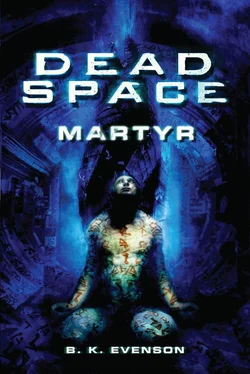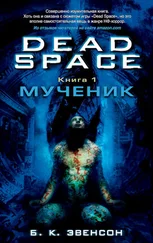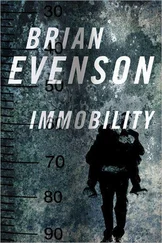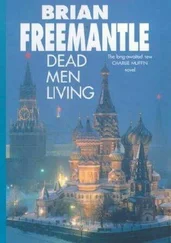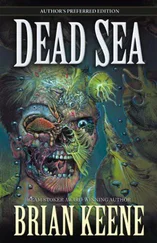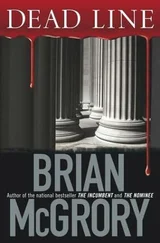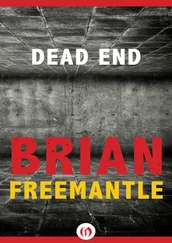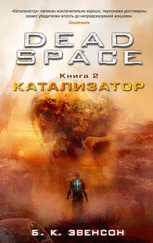What kind of machine?
As I said in my note, wrote Skud, and then there was a long moment where the screen remained blank. Very sorry, he finally wrote, I see now I left it off my note. A drill. I do not have enough data to prove it, and maybe it is only ordinary seismic activity. But I think maybe somebody has been drilling, and maybe in the center of the crater.
Altman immediately disconnected from the system and went outside to call Skud. The man seemed startled, a little confused, but after a while, he started to fill in the details in a way that Altman understood. Skud was drawing his readings from multiple seismographs, some on land, some underwater, several very close to the center of the crater itself. Only those near the center had noticed anything. The reading, Skud said, was something that would normally be dismissed as insignificant, very minor seismic activity. But it was also possible, he claimed, that it could be from a heavy, industrial-scale drill. It was very regular, he said, which would not be typical of a seismic event.
“But you’re not sure if it’s in the center of the crater.”
“No,” said Skud. “Exactly, that is the problem.”
“Where else would it be if not the center?”
“It might be as far as fifty meters from the center,” said Skud. “I have done calculations but I am afraid they are inconclusive.”
“But that might as well be the center!” said Altman, frustrated.
“No, you see,” said Skud patiently. “As I said, it might be as far as fifty meters from the center. That is not the center.”
Altman started to argue, then stopped, thanked him, and disconnected. He stayed there, looking out at the ocean awhile and then glanced inside to the window. Field was still keeping to his side of the room, talking on the telephone now, seeming no more and no less animated than earlier. Altman turned back to the ocean again.
Slowly things were beginning to take shape in his mind. He wished that Hammond would get back in touch, since he’d been aware of it before anyone else. He might have a perspective that Altman and the others didn’t have yet. In the meantime, it was up to them.
There was nothing to say for certain that the pulse, the freighter, and the seismic readings were all connected. But then again, there was nothing to suggest that they weren’t. And all three had something in common: the center of the crater. Something was going on down there. Maybe something had been discovered, maybe it was some sort of weapons test, maybe it was some incredibly uncommon but natural phenomenon. But something was happening, something weird, something that someone didn’t want the public to know about.
He swore he would find out what it was. Even if it killed him.
“I’ve got it now,” said Tanner, his eyes red-rimmed, his face noticeably pale. He’d reached the limits of the anti-sleep medication. He had only an hour at most before either he collapsed or it started doing serious internal damage.
“Let’s see it,” said the Colonel.
“I should warn you—” Tanner began.
“—I don’t need any warnings,” the Colonel interrupted. “Just play it.”
Tanner sent the file through the screen and opened it. It started to play.
Tanner closed his eyes, but once the sound started, the dim hiss of static, the images flooded into his mind anyway, made worse by his imagination and his lack of sleep. He opened his eyes and looked.
There wasn’t much. The image had been broadcast through layers of rock and it was, in a sense, surprising that anything had gotten through at all. Tanner wished that it hadn’t.
At first there was only the sound of static, the image itself nothing but snow. Then, little bits and pieces started to emerge. In terms of the images, it was as if the snow was taking on texture, a vaguely human face forming and then dissolving again, what looked like a hand, what could have been a fist around a pipe or then again been nothing at all. The sound went from a staticky hiss to a whisper to something that sounded like a man was speaking through a mouthful of bees. Something that sounded like a scream, bloodcurdling. A dull rhythm that might have been someone talking. Someone singing, a wandering, meandering nursery rhyme.
And then, suddenly, a brief moment of clarity, a man’s face, weirdly backlit and terrified, his skin covered with something, quickly bursting into fuzz again.
“Freeze that,” said the Colonel.
Tanner stopped the vid and spun it backward. The man’s eyes had an emptiness to them. His features were strangely distorted, as if he were screaming. His face was covered with strange markings, symbols of some kind, which extended down his neck and chest and arms.
“Hennessy? What’s he done to himself?” asked the Colonel. “What did he use to write?”
“Blood, we think,” said Tanner. “You can see it dripping off his hand to the left there, and there seems to be a cut on his arm. Maybe it’s his own blood, maybe Dantec’s. If you look behind him, you’ll see traces of the symbols on the walls as well, which, we assume, is also blood.”
The Colonel furrowed his brow. “What do the symbols mean?”
“We don’t know,” said Tanner. “Nobody has ever seen anything quite like them.” When the Colonel didn’t say anything, Tanner asked, “Shall we go on?”
The Colonel waved his hand. “All right,” he said, “go on.”
More hissing, more static, more vague and distorted images. At one point, a brief glimpse of an arm that had been torn free of its socket, its lifeless hand curled up like a dead spider. A bit of the command chair, spattered with blood. And then Hennessy was back, humming to himself, swaying slightly, covered with bloody symbols.
“Hello,” he said, then dissolved again. He flickered in and out of existence, along with bits of words, nothing that could be sorted out, and then, something that sounded like shame or maybe was part of another word. And then “—something — eed to know.”
Onscreen, Hennessy clutched his head and then was replaced by static, in color this time. When he reappeared, he was giving the camera a strangely ecstatic smile.
“—track,” he said.
There was a long silence.
“—simply not en—” he said. Then, a little later, “—not care — will have le — usk.”
Hard to make much sense of it, thought Tanner. But whatever it was, it wasn’t good.
Then Hennessy was back again, with that same intense smile. He had moved closer to the camera, almost filling up the screen.
“—virgins,” he said, and gestured offscreen. Then he was still there, still talking, but little more than a ghost in the static, the sound completely lost until, near the end he came back, the image almost clear now. “—understand the—” he said, then a microburst of static. Then “—destroy it.”
Hennessy moved out of the way, revealing, in the command chair behind him, the bits and pieces of Dantec’s body. And then the vid ended.
“How many people have seen this?” asked the Colonel.
“This particular version? Three or four technicians. But it was generally broadcast, so a lot of people may have seen different bits of it. No way to say who has seen what.”
“So, no point killing the technicians, then?” asked the Colonel.
“Excuse me?” said Tanner.
“This is big, Tanner,” said the Colonel. “Much bigger than you can even imagine. It’s much more important than a life or two. There are billions of people on the earth. People are expendable. But this thing, whatever it is, this is the only one we’ve ever seen.”
“Are you saying I’m expendable?” said Tanner slowly.
Читать дальше
